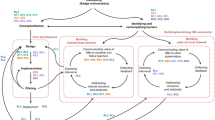Abstract
Ubiquitous learning (U-learning) in the age of hyper-connectivity offers a new learning space that is shifting the dynamics of the formal to informal learning continuum, and therefore encouraging industries to explore alternative preferences for learning and credentialing in the 21st century. Lately, the uses of digital badges to credential learning have been amplified in schools and businesses through many innovative means. Yet, badge application is an open-textured concept where no single static application exists. This paper discusses salient characteristics of badges from a pedagogical standpoint and discusses exemplary case studies of badge use in the education and business sectors. This paper contributes to the discourse on the badge use as a viable mechanism for learning credentials in a U-learning society. The paper also identifies the current limitations of badges where the authors recommend that badges be regarded as an additional instrument in the scaffolding of learner understanding of crucial material, rather than it being intended to replace traditional formats of learning validation.
Access this chapter
Tax calculation will be finalised at checkout
Purchases are for personal use only
Similar content being viewed by others
References
Allen, I.E., Seaman, J.: Grade change survey (2014). http://sloanconsortium.org
Class-Central: By The Numbers: MOOCs in 2016 (2016). https://www.class-central.com
Knight, E., Casilli, C. (eds.): Mozilla Open Badges in Game Changers: Education and Information Technologies. EDUCAUSE (2012)
Harris, D., Williams, J.: The association of classroom interactions, year group and social class. Br. Educ. Res. J. 38(3), 373–397 (2012)
University of California, Davis: Digital badge system helps students develop skills (2014). http://www.caes.ucdavis.edu
Charnov, A.: Personalized Learning is Maximizing Opportunity for Every Student. Alliance for Excellent Education (2017). https://all4ed.org/reports-factsheets
Walshe, S.: Digital badges finding use in education and across industries, extreme networks (2014). https://content.extremenetworks.com
Welch, C.: Nike redesigned its popular running app, and users are very angry. The Verge (2016). https://www.theverge.com
Author information
Authors and Affiliations
Corresponding author
Editor information
Editors and Affiliations
Rights and permissions
Copyright information
© 2018 Springer Nature Singapore Pte Ltd.
About this paper
Cite this paper
Auh, Y., Sim, H.R. (2018). Ubiquitous Learning and Digital Badges in the Age of Hyper-connectivity. In: Park, J., Loia, V., Yi, G., Sung, Y. (eds) Advances in Computer Science and Ubiquitous Computing. CUTE CSA 2017 2017. Lecture Notes in Electrical Engineering, vol 474. Springer, Singapore. https://doi.org/10.1007/978-981-10-7605-3_233
Download citation
DOI: https://doi.org/10.1007/978-981-10-7605-3_233
Published:
Publisher Name: Springer, Singapore
Print ISBN: 978-981-10-7604-6
Online ISBN: 978-981-10-7605-3
eBook Packages: EngineeringEngineering (R0)




